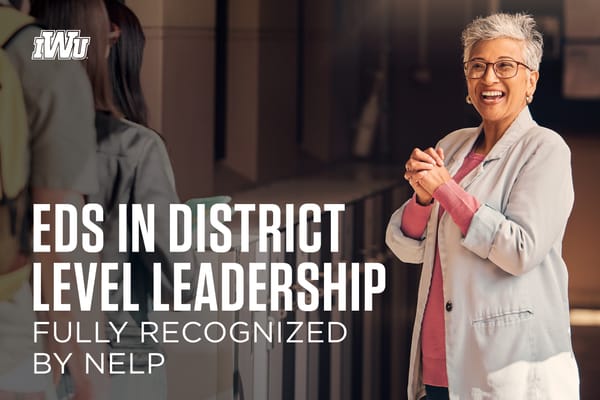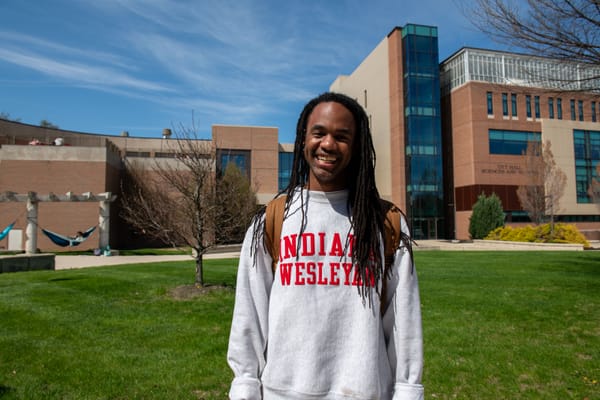Presidents of the Past—James P. Hill Jr. (1984-1986)

A Two-Year Leap
Jim Hill grew up in North Carolina, the son of an evangelist who often traveled and was known throughout the Wesleyan Church. As such, when it came time for him to attend college there was one clear, Wesleyan choice for him–Houghton College. While there he met Olga Norman, the woman who would one day become his wife. While his hope was to graduate with a Bachelor of Science in Biology and Chemistry, the climate in upstate New York wrought havoc on his allergies so much he left after two years and transferred to Roanoke College in Salem, Virginia for the remainder of his undergraduate program. “It broke my heart to transfer, because I wanted to graduate with my class at Houghton, but it worked out okay,” Hill later said.
After finishing his degree at Roanoke College in 1957, Hill went into teaching in the Roanoke public school system, before earning his Master of Science Education degree at the University of Virginia and a Doctor of Education in Higher Education at Virginia Polytechnic Institute and State University.
After gaining his degrees, Hill began to teach at Central Wesleyan College (now Southern Wesleyan University) in South Carolina, before becoming the academic dean at Piedmont Community College in 1976. Here Hill and his family settled in, with James and Olga’s son making it through high school while they lived here.
At first Shaun’s college plans were to attend Furman University, but due to the encouragement of a cousin who was a student at Marion College, Shaun Hill became interested in checking out Marion College. As a graduation present, the Hills purchased a Ford Mustang for their son, but because his custom seats weren’t ready yet, the Hills ended up driving Shaun to Marion College in 1980 for his freshman year themselves. During Thanksgiving week, they drove the finished Mustang to Marion for Shaun to use. While visiting they ate a meal with some of their friends who worked on campus, one of whom was Bill Economan–the Executive Director for Institutional Advancement and the other of whom was Jim Blackburn–both the Director of Admissions and Records and Hill’s brother-in-law.
During dinner, Economan asked Hill if he would come to Marion College to work. Not long after, Hill became the new Director of Development at Marion College, working directly under Economan. Hill continued in this position for just a few years before Economan flipped their positions in 1983 out of a desire to slow down and take responsibilities off himself. “I was appointed to his position as Executive Director of Institutional Advancement, and he worked for me. I held that job a year, and then the next year is when Dr. Luckey decided to retire.”
Although Barnes began at Marion College far earlier than Hill, with the latter still new to the jobs he had walked into, it was James and Olga Hill who ended up making the best impression on the search committee and the Board of Trustees. While Barnes was reserved and raised concerns regarding the current state of the college, Hill were charismatic, fresh, and presented high hopes and bold dreams for the future of the college. In the end, this seems to have been preferred and Hill was chosen with Barnes departing the school not long after.
“In the Christian liberal arts setting, Christ is the plumb line for all our calculations, whether in breadth or depth or height,” Hill said at his inauguration. He also presented many projects and prospects he envisioned and expressed excitement for. “Indeed, I do have great dreams for Marion College and a desire to pay the price to see those dreams reach fruition.”
Turning his attention to his own position he stated he saw a successful president as “a composite of the following: an advisor and interrogator, an example and tutor, a confidant and adversary, a planner and innovator. The president has to be an educational practitioner, a partner in learning, sensitive to others’ efforts to construct, to question, to love, to live, to work, to strive, always allowing others to be themselves. A president must be a good listener and observer of how particular faculty have mastered the art and industry of keeping little things little. He does not judge, but rather examines educational views on campus. He strives to assist and facilitate the faculty and students who have forgotten to dream and the ones who never learned, and reminds both that dreams are possible, yet there is a price to be paid if one’s dreams become reality.”
At this time Hill also wrote in The Triangle about his plans for the university. “Quality and excellence in programming are high priorities. To achieve this, specific areas will be strengthened, based on the firm belief that the mission of Christian education is to articulate and perpetuate Christian thought in the context of a contemporary and complex society. This reason for existence and sense of mission must permeate every part of the college–each Division, supportive and administrative staffs, and Presidency. Each student that enrolls at Marion College should gain the skills necessary to be attractive in the job market and to cope as a steadfast Christian in the marketplace. This emphasis upon biblical Christian faith, developing mind, soul, and body, enhances the total person.” Turning towards the topic of Endowment, Hill wrote, “Though it has made significant strides, Marion College lags by one-third Indiana State schools in faculty salaries. One way to improve these as well as facilities is in raising more endowment. The key is to match people with projects: endow faculty chairs as well as buildings. Encouraging professional growth goals as a means of advancement could result from such an endowment program. Separate tracks for faculty and staff would allow persons in each area upward job mobility. Fund raising from the community, foundations, estate, and large donors as well as increasing the number of annual contributors will assure growing gift income.” Last, speaking about students, he wrote, “emphasis on serving students from the moment of their initial contact to registration and enrollment, through campus life to their successful graduation and alumni status will be the purpose of the reorganized Student Personnel Services. Included in this area will be career development, study skills, and nonacademic counseling. Consultation of a psychologist will be available. The goal will be to take a student from where he is and help him move forward toward his lifetime goals.”
Near the beginning of Hill’s first year, a man named Paul Hoffner came to visit Hill and other leaders of the university. Hoffner represented the University of Phoenix and a potential adult education program he thought Marion College might find interesting. Given this was a new and untested idea at the time with very little to compare it to, however, Hoffner was turned away without even speaking to Hill.
Hoffner was persistent however, and after three or four months he finally got a meeting with President Hill. Although Hill and others were still skeptical of the notion, the initial meeting went well enough Hoffner was able to convince Hill to go on a trip to Milwaukee to see one of the few existing examples of the idea in practice. This trip was the turning point in Hill’s perspective on the program, with the president getting onboard for it once he saw proof of its success in action.
“Nothing like this had ever happened at a college in the Wesleyan Church,” Hill later reflected, “and the first issue that came up was selling the idea to the board of trustees. Church discipline required that half of all the board members at denomination colleges had to be ministers. I don’t mean this to be derogatory, but a lot of those were people from small churches with small budgets, and they were used to pinching pennies, and that was a wise thing to do, but they also wanted to run the college that way. And I said, no, this adult education program is going to help us.”
Despite pushback, Hill continued to press on the board to let the adult education program happen at Marion College. Although it took multiple attempts, Hoffner’s adult education program passed. The first class of the program–called LEAP (Leadership Education for Adult Professionals)–consisted of sixteen students and offered bachelor’s degrees in management and administration and master’s degrees in management and business administration. 1984-1985 was declared “the year of pursuit of excellence” and saw the end of debts on Williams Hall, the Luckey Physical Education Center, and Goodman Library. At the conclusion of his first year as president, Hill was on a good trajectory.
The 1985-1986 academic year, however, was much less positive. Enrollment decreased as costs increased, leading to Marion College’s first year in the red in quite some time. Throughout the course of his second year there was a growing dissatisfaction regarding the administration’s ability to account for spending and reasons for why costs were as high as they were. This confusion and frustration led to the loss of a great deal of the support Hill accrued from his charismatic personality. After making lofty promises to Marion College, Hill was now forced to deal with the realities of what those grand ideas would require. When the year ended the school was $400,000 in the red, with LEAP responsible for some of those expenses without bringing in much to offset them.
Addressing the matter, Hill wrote, “The Chinese definition of crises and opportunities is identical. Literally translated it reads, ‘Crisis is an opportunity riding the winds of danger.’” For the last two weeks of his presidency, Hill always carried a letter of resignation with him, which he handed in of his own volition on June 14th.
“I was praying about all of this, and I knew beyond a shadow of a doubt that the Lord had called me there. And I told [the board], I think the Lord is not finished with what he called me to do, but I said there are people who want things to go this way or that way, so unless we can reach a common conclusion and move forward, I think it would be better if I just step down.” He added, “I didn’t have to stay at Marion College.”
“Jim Hill could have saved himself right up to the last minute if he would have just repented and allowed the board of trustees to monitor his spending habits,” then Vice-President for Financial Affairs Dr. James Kraai, later reflected. “The board really found it hard to terminate a president who had only served for two years.”
After Hill’s departure, previous president Robert Luckey returned to serve as acting president for a time until a proper replacement for Hill was found. In one of his first statements since returning, Luckey wrote, “At the time of Dr. Hill’s resignation, a press release stated, ‘It is mutually agreed by the president and the trustees that a change in leadership at this time is in the best interests of the college.’ I believe we should take this at face value and liken it to the decision of any corporation’s board of directors who decide to make a change of leadership without recrimination to anyone. Our emphasis should now be on the future, and God has already answered many prayers for a very promising year.”
Although adult education didn’t make a profit at first and cost a significant amount to get started, with the benefit of decades of intervening time, it is easy to see this was one of the best decisions in the history of the school. By the time Barnes took office, LEAP enrollment was reaching 700 students. While he is the shortest-lasting official president, with Henry West even serving as acting president longer than Hill’s entire presidency lasted, Hill made a significant contribution to IWU’s future, nonetheless. Through LEAP, Marion College was launched into new places of growth and opportunity, paving the way for much of IWU’s current success.
Want to read more? Check out the other articles in the "President's of the Past" series!
- Henry C. Bedford (1919-1922)
- John W. Leedy (1922-1927)
- The Forgotten Presidents (1927-1932)
- William F. McConn (1932-1960)
- Woodrow I. Goodman (1960-1976)
- Robert R. Luckey (1976-1984, 1986-1987)
- James P. Hill Jr. (1984-1986)
- James B. Barnes (1987-2006)
- Henry L. Smith (2006-2013)
- David W. Wright (2013-2022)





